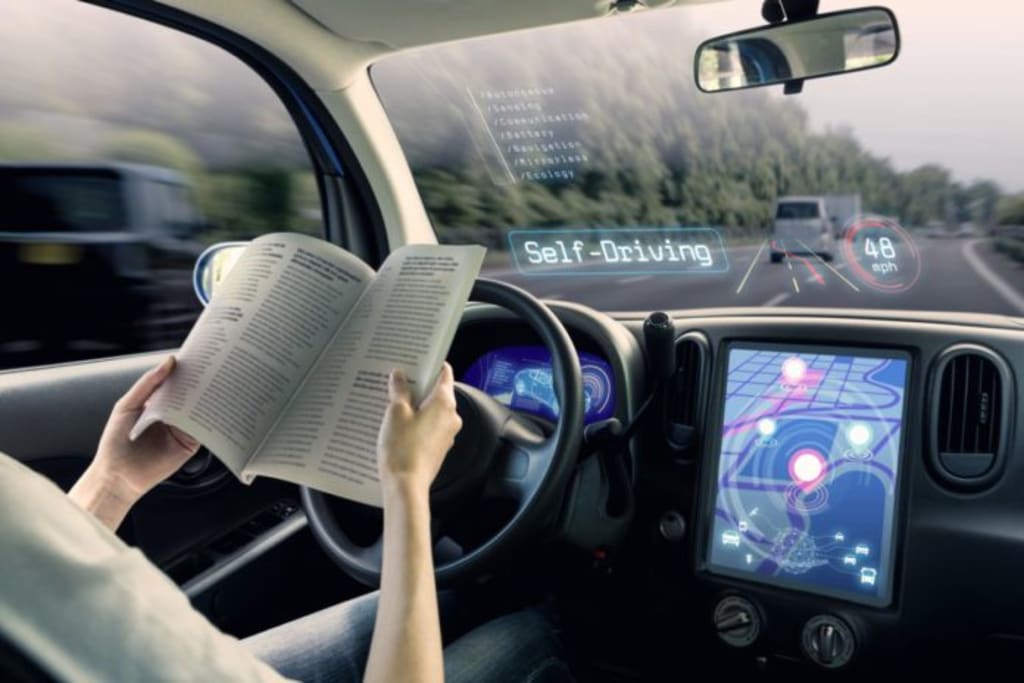Driving into the Future: The Role of AI in the Transportation Industry
How AI is Revolutionizing Transportation and Improving Efficiency and Safety

The transportation industry has been undergoing a major transformation in recent years, thanks in part to the integration of artificial intelligence (AI) technologies. From autonomous vehicles to smart traffic management systems, AI is revolutionizing the way we move goods and people around the world. In this article, we'll explore the various applications of AI in the transportation industry and examine how they are improving efficiency, safety, and sustainability.
One of the most significant applications of AI in transportation is the development of autonomous vehicles. Self-driving cars and trucks are being developed by major automakers and tech companies, with the potential to transform the way we travel and transport goods. Autonomous vehicles can improve safety by reducing the risk of human error, which is responsible for the majority of accidents on the road. They can also increase efficiency by optimizing routes, reducing fuel consumption, and decreasing congestion.
In addition to autonomous vehicles, AI is also being used to improve the efficiency of transportation systems as a whole. Smart traffic management systems use AI algorithms to analyze traffic patterns and adjust traffic signals in real-time to reduce congestion and improve traffic flow. This can lead to reduced travel times, lower emissions, and improved safety.
AI is also being used to improve the safety and security of transportation systems. For example, AI-powered cameras and sensors can monitor vehicles and infrastructure in real-time, alerting authorities to potential hazards and security threats. Additionally, AI algorithms can analyze data from various sources, such as weather forecasts and traffic patterns, to provide real-time information to drivers and transportation operators, helping them make informed decisions.
The integration of AI in transportation also has the potential to improve sustainability. AI algorithms can help optimize vehicle routing and reduce fuel consumption, leading to lower emissions and a reduced carbon footprint. Additionally, the development of electric and hybrid vehicles, which are powered by AI-driven batteries and charging systems, can help reduce reliance on fossil fuels and promote sustainable transportation.
However, it is important to note that the integration of AI in transportation is not without challenges. One major concern is the potential for job displacement, particularly for drivers and other transportation workers. Additionally, the development of autonomous vehicles raises ethical and legal questions, such as who is responsible in the event of an accident.
To mitigate these challenges, policymakers and transportation industry leaders must work together to ensure that the integration of AI is done in a way that is both ethical and equitable. This could include investing in programs that provide training and re-skilling opportunities for workers who may be affected by automation, as well as implementing regulations and standards that ensure the safety and security of autonomous vehicles.
Another challenge associated with the integration of AI in transportation is the potential for cybersecurity threats. As transportation systems become more connected and reliant on technology, they become more vulnerable to cyber attacks. Malicious actors could potentially take control of autonomous vehicles or disrupt traffic management systems, leading to safety risks and disruptions. To mitigate these risks, transportation companies and governments must prioritize cybersecurity measures and invest in technologies that can detect and prevent cyber attacks.
Despite these challenges, the benefits of AI in transportation are undeniable. From improving safety and efficiency to promoting sustainability, AI technologies have the potential to transform the transportation industry for the better. As the industry continues to evolve, it will be essential for stakeholders to collaborate and address the challenges associated with the integration of AI, ensuring that the benefits of this technology are accessible to everyone.
In conclusion, the integration of AI in the transportation industry has the potential to revolutionize the way we move goods and people around the world. From autonomous vehicles to smart traffic management systems, AI technologies are improving efficiency, safety, and sustainability. However, it is important for policymakers and industry leaders to address the challenges associated with the integration of AI in transportation, ensuring that the benefits of this technology are distributed equitably and ethically. By taking a comprehensive and ethical approach to the integration of AI, we can help build a more efficient, sustainable, and safer future of transportation.





Comments
There are no comments for this story
Be the first to respond and start the conversation.